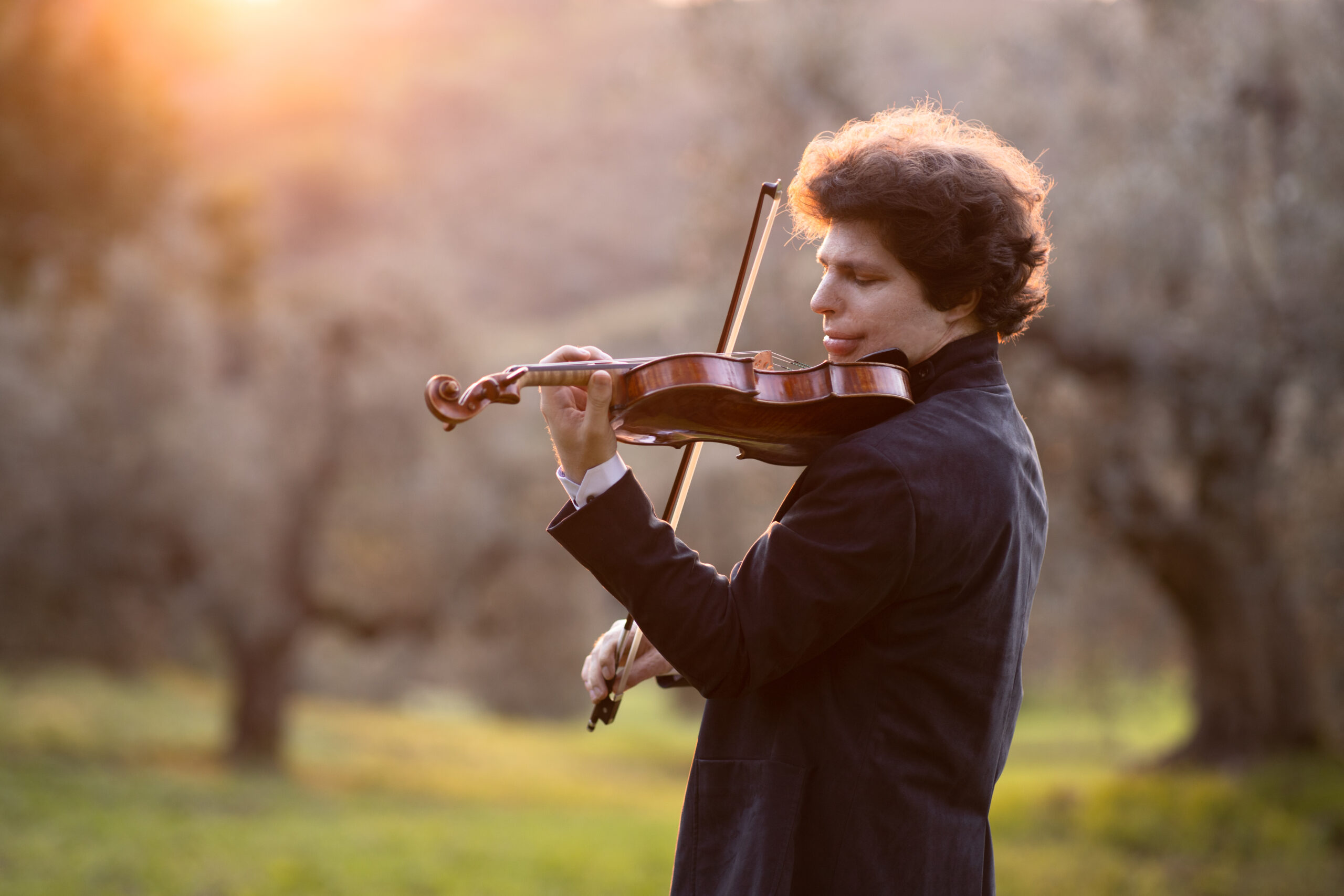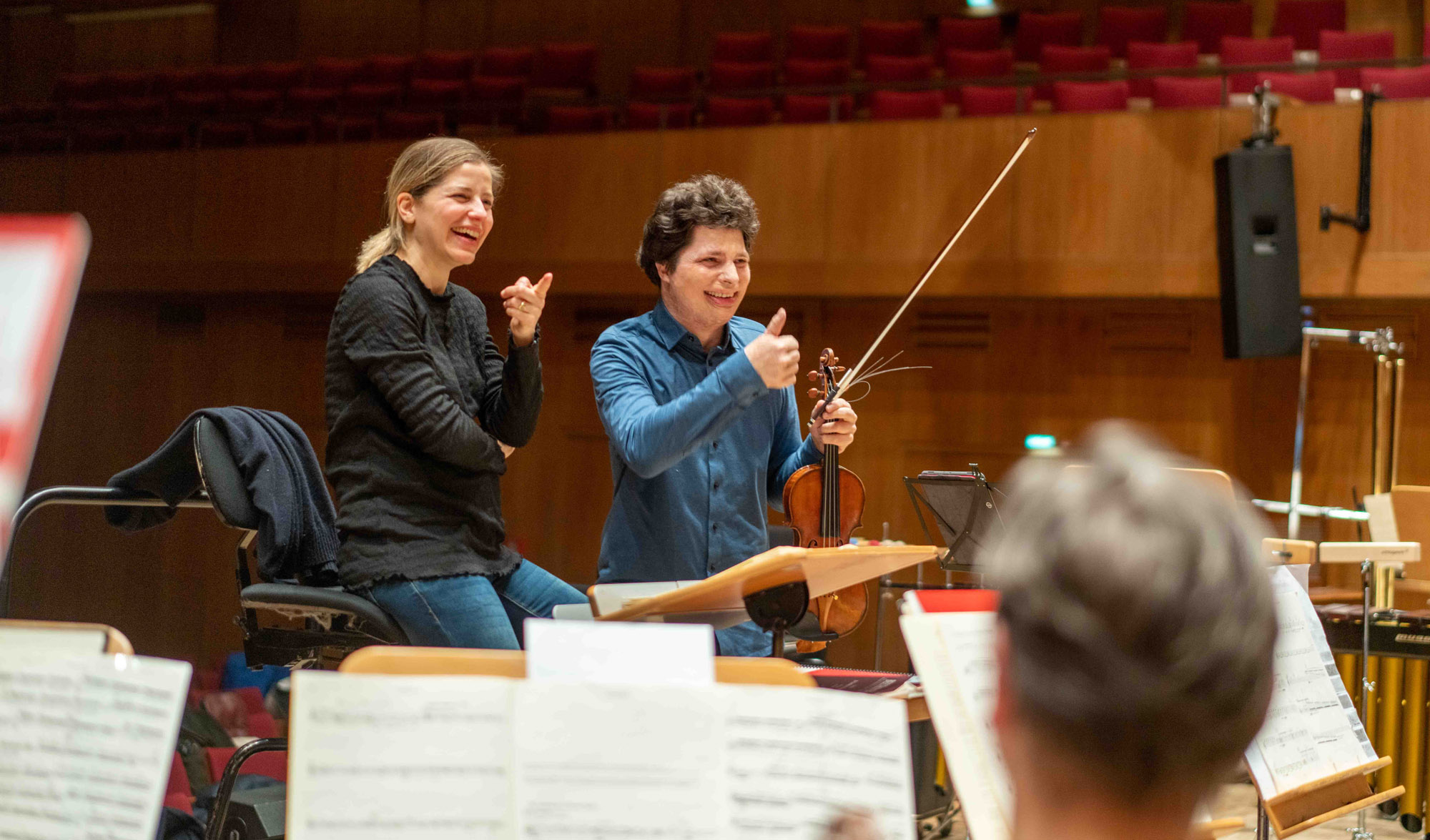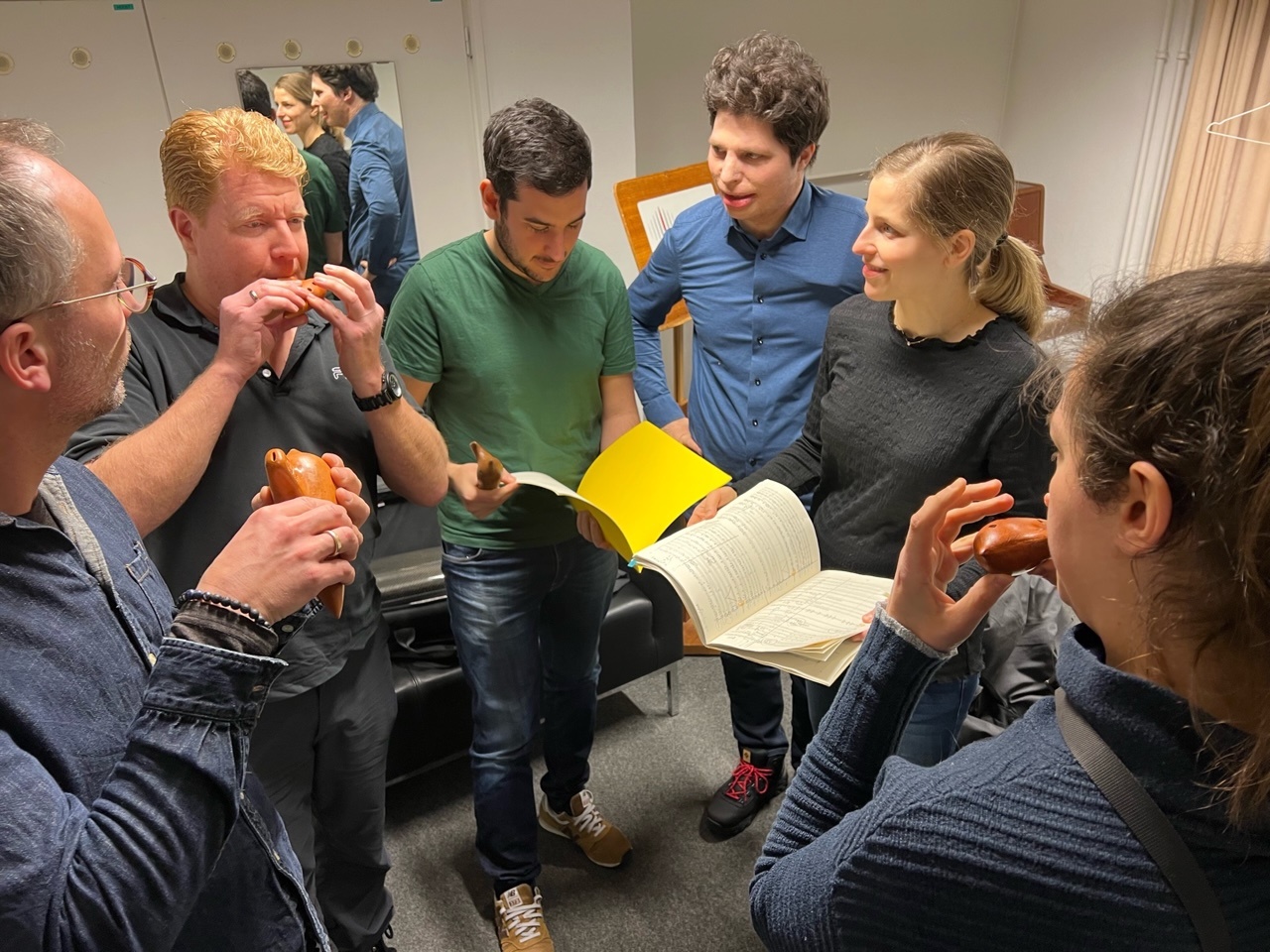Karina Canellakis & Augustin Hadelich
Ludwig van Beethoven
"The Creatures of Prometheus" - Overture from the ballet music op. 43
György Ligeti
Concerto for violin and orchestra
Witold Lutosławski
Concerto for orchestra
Karina Canellakis
Conductor
Karina Canellakis - Conductor

Internationally acclaimed for her emotionally charged performances, technical command and interpretive depth, Karina Canellakis has become one of the most in-demand conductors of her generation. She is the Chief Conductor of Netherlands Radio Philharmonic Orchestra, the Principal Guest Conductor of the London Philharmonic Orchestra. She was Principal Guest Conductor of the Rundfunk-Sinfonieorchester Berlin (RSB) until the end of the 2022/23 season.
As Principal Guest Conductor of the London Philharmonic Orchestra, she recently led an extensive tour of Germany’s most prestigious concert halls with the orchestra and soloist Daniil Trifonov. Karina continues to present exciting modern pieces as well as well-known masterpieces at the Concertgebouw Amsterdam and TivoliVredenburg in Utrecht with the Netherlands Radio Philharmonic Orchestra, where she holds the title of Chief Conductor.
In the 23-24 season, Vienna’s Musikverein will feature her as an Artist-in-Residence, appearing several times across the season with four different orchestras.
Since winning the Sir Georg Solti Conducting Award in 2016 Karina has become a guest conductor with leading orchestras around the world, including the Boston Symphony, Cleveland Orchestra, Chicago Symphony, Philadelphia Orchestra, Bavarian Radio Symphony, Gewandhausorchester Leipzig, NDR Elbphilharmonie Orchestra, Orchestre de Paris, London Symphony Orchestra, LA Phil, San Francisco Symphony, Vienna Symphony and Munich Philharmonic. She was the first woman to conduct the First Night of the BBC Proms in London in 2019, with the BBC Symphony Orchestra. She was also the first woman to ever conduct the Nobel Prize Concert with the Royal Stockholm Philharmonic in 2018.
Already known to many in the classical music world for her virtuoso violin playing, Karina was initially encouraged to pursue conducting by Sir Simon Rattle while she was playing regularly in the Berlin Philharmonic for two years as a member of their Orchester-Akademie. She performed for many years as a soloist, guest leader, and chamber musician, spending her summers at the Marlboro Music Festival, until conducting eventually became her focus. Karina was born and raised in New York City.
After the great success of “Kat’a Kabánova” in the previous season, she brings another Janáček opera, “The Cunning Little Vixen“, to the stage of the Concertgebouw in April 2023. Her concert performances of acts of Wagner’s “Die Walküre”, “Tristan und Isolde”, and “Siegfried” have been met with tremendous critical praise, and she has conducted critically acclaimed productions of Tchaikovsky’s “Eugene Onegin”, Mozart’s “Don Giovanni”, “Die Zauberflöte”, “Le nozze di Figaro”, David Lang’s “the loser” and Peter Maxwell Davies’ “The Hogboon”.
Augustin Hadelich
Violin
Augustin Hadelich - Violin

Augustin Hadelich has established himself as one of the great violinists of his generation. He has performed with all the major American orchestras, and his increasingly numerous appearances in Great Britain, Europe and the Far East have earned him a phenomenal reputation. Critics praise his outstanding technique, the stringency and persuasiveness of his interpretations and his ravishing tone.
Highlights of the 2020/2021 season include his debuts with the Leipzig Gewandhaus Orchestra and the Zurich Opera Orchestra. As Associate Artist of the NDR Elbphilharmonie Orchester he will be a guest in Hamburg again. In addition, engagements will take him to the WDR Symphony Orchestra, Dresden Philharmonic, ORF Radio Symphony Orchestra Vienna and BBC Scottish Symphony Orchestra. He follows invitations to the Danish National Symphony Orchestra, Finnish Radio Symphony and Orchestre de Chambre de Lausanne. In the spring of 2021, he will give a recital tour in Munich, Hamburg, Antwerp, Paris and other cities.
Rundfunk-Sinfonieorchester Berlin
Positive Renitence
Apparently out-of-tune instruments, ocarina-playing percussionists and natural tone rows of horns against the “normal” orchestra. Ligeti’s Violin Concerto (1990) is a fascinating sound experiment that dares to break out of Europe’s standardised, “well-tempered” tonal system by allying itself with natural tone rows. Ligeti shows us what we have to do without in view of the twelve evenly distributed semitones of the octave.
“There must be no indifferent sounds in music.” What the Polish composer Lutosławski took for granted also suits Ligeti. The Concerto for Orchestra not only refers to Béla Bartók in its name. In 1954, it convincingly united all the neo-classical currents of the early 20th century in a work that was as original as it was kaleidoscopic. It almost goes without saying that Beethoven’s titanic “Prometheus”, which is not at all pleasing to God, joins the ranks of those personalities who strive to lead people to and beyond their limits in the best sense of the word.
Concert introduction: 3.10 p.m., South Foyer, concert introduction by Steffen Georgie







